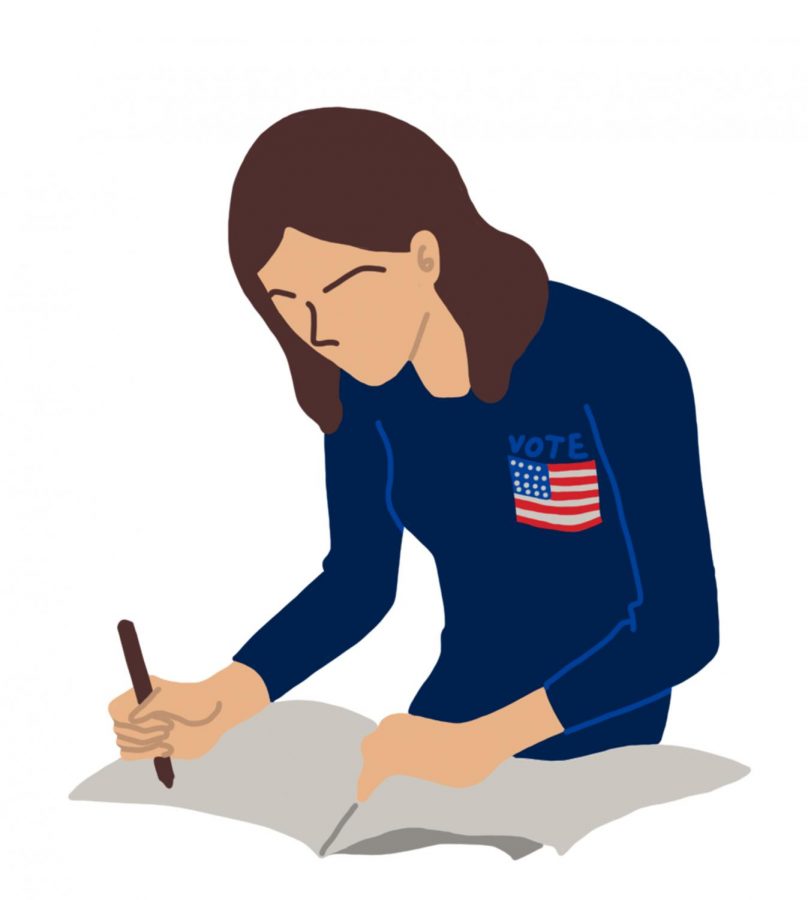Be like me … be a poll worker for the next election!
On Nov. 3, I was an Election Day poll worker. It was an interesting, rewarding and pretty lucrative job. Here’s how it went and why more college kids should start being poll workers.
Historically, poll workers and other election officials are typically older retired citizens. This is mostly because they are able to be at the polls for the entire day when other people can’t take that kind of time off or have other responsibilities. Poll working wasn’t something that was really on my radar before, but luckily, the sociology and anthropology department sent out announcements saying that Bexar County was looking for poll workers, especially young poll workers. Poll workers come into contact with a lot of people all day; with COVID-19, this is pretty high risk, so many counties were trying to get younger people to help mitigate the danger posed to older workers.
There are three positions you can apply for: presiding judge, alternate judge and election clerk. Judges make more money than clerks and have more training and responsibilities. Since this was my first time doing anything like this, I just stuck with the election clerk. The application process was straightforward; it only asked for basics like a street address, DOB, contact information and voter registration number (you must be registered to vote to be an election official). The only slightly unfortunate thing is that you must print and then mail out the application. I hate to say this, but this almost stopped me and might stop other younger people, but do it.
After I submitted my application, I got an email in September giving the position’s details: The election clerk pays $15 an hour, and you work from 6 a.m. to 7 or 8 p.m. depending on which station you work at. I was done around 8 p.m. after getting everything cleaned up. The county also offers training sessions that tell you everything you need to know to be a clerk.
The training session is about two and a half hours, but it went by quickly since you are taking notes, actively setting up equipment and running through potential scenarios. The training is super important and makes working election day much easier, so make sure you go.
On Election Day, when it says all day, it means all day.
I showed up at my station at 6 a.m., along with two other clerks, an alternate judge and a presiding judge. The judges run the show and are the people you go to when there are any issues or questions. Six a.m. to 7 a.m. was all about getting the polling station set up. This meant getting the computer out and functioning, moving tables around to hold the actual voting equipment, hanging up signs, getting all the safety equipment out like the plastic shields, and taping the six-feet-apart markers. There are folders outlining how to do all of this, but the training made the process much quicker and smoother.
Then voters started coming into the door at 7 a.m. As a clerk, I just made sure they had the proper forms of ID and that they matched the picture on their ID, and then scanned or looked them on the voting system to ensure they were registered. There were a couple of issues throughout the day, with someone not coming up in the system, but the other clerks and judges were very helpful and cleared up the situation if needed.
Make sure you bring A LOT of food. You should pack for an entire day of eating. Everyone brought coolers, and I made enough food to last me the whole day. Depending on how busy your station is, you may have time to go out and get lunch, but I would pack like you won’t be able to leave. The polling station closed at 7 p.m., but there is a lot of cleanup involved, so I didn’t leave until 8 p.m. You have to pack up all the equipment and then carefully make sure you get all the voting data and forms put away correctly to ensure that every vote is counted.
My polling station was very slow — we only had about 75 people show up the entire time — so I would also recommend bringing some books or even homework to do if you get placed at a slow station.
The other poll workers were really friendly and interesting people, so it was pretty fun spending the day with new people. Overall, even though it was a slow day, it was really rewarding. I enjoyed becoming more informed about the voting process and partaking in an essential aspect of our democracy. It also doesn’t hurt getting some money in the process, so please, next time there are elections, think about applying to be a clerk.



